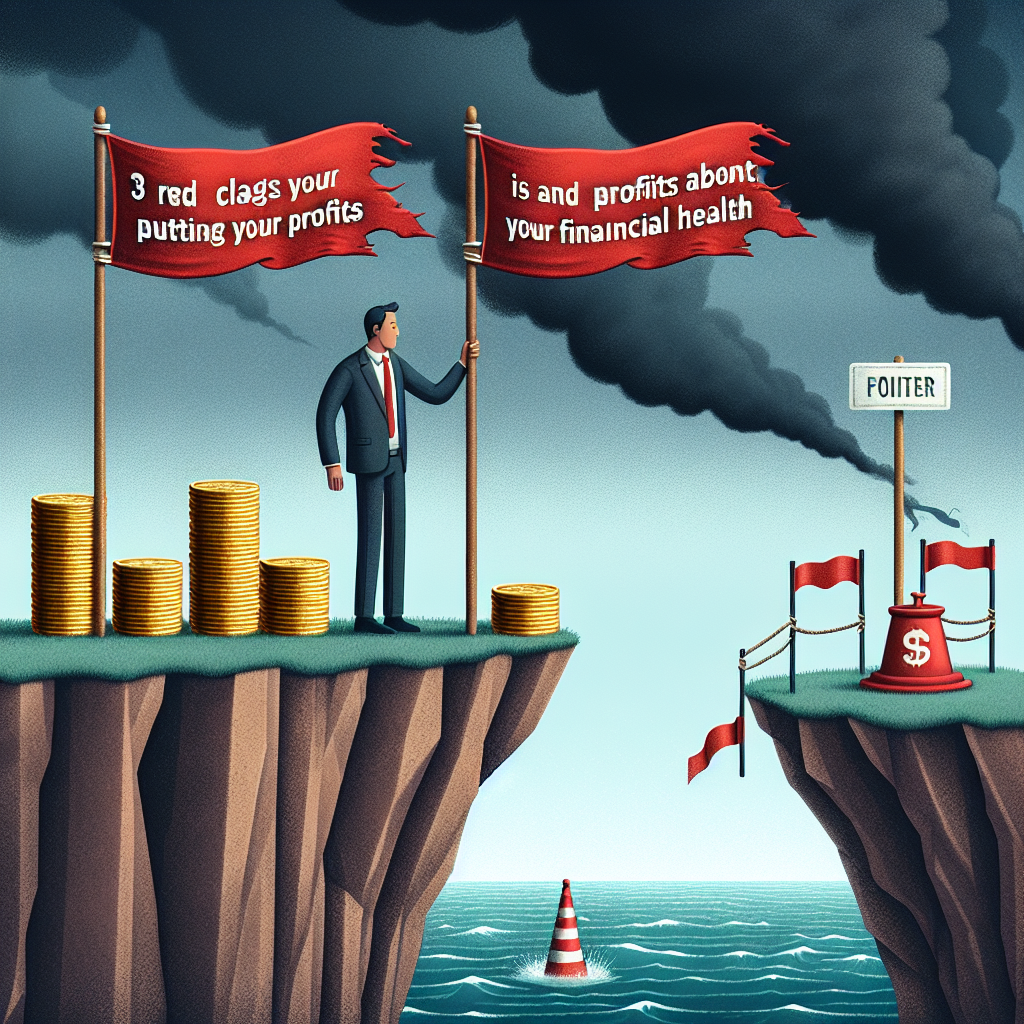3 Warning Signs Your Broker May Be Prioritizing Profits Over Your Financial Well-Being
When it comes to managing your investments, having a trustworthy broker is crucial. They are your guide in navigating the complex world of stocks, bonds, and other financial opportunities. However, not all brokers have your best interests at heart. Some are more focused on making profits for themselves than on helping you achieve your financial goals. Here, we’ll discuss three red flags that indicate your broker might be prioritizing their commission above your financial health.
1. Frequent Trading Recommendations
If your broker frequently suggests buying and selling stocks without a solid reason, this is the first red flag. While trading can lead to profits, excessive trading can rack up hefty fees and commissions that eat away at your earnings.
Brokers earn a commission every time you make a trade, so recommending frequent transactions could be more about padding their wallet than securing your financial future. Always question the rationale behind their recommendations. A good broker should provide clear, reasonable explanations for each trade’s potential benefits versus risks and consider your long-term goals.
Before making any drastic moves, take a step back and evaluate if the trades are genuinely beneficial to your portfolio. If you’re ever uncertain, don’t hesitate to seek a second opinion on your investment decisions. It’s important that the trades you make are aligned with your personal financial strategy.
2. Lack of Transparency in Fees
Understanding your broker’s fee structure is critical. If your broker is vague or secretive about the fees associated with trades, this is a significant warning sign. High fees can drastically reduce your investment returns over time.
Transparency in fees is essential for developing a trustworthy relationship with your broker. They should openly discuss:
- Commission Fees: How much they charge per trade.
- Management Fees: Any ongoing fees for managing your investment.
- Account Maintenance Fees: Charges related to maintaining your account.
If you find it challenging to get this information or if your broker often avoids discussing fees, it might be time to reconsider your relationship. Look for brokers who provide clear and straightforward information. This not only builds trust but also allows you to make better-informed decisions about where your money is going.
3. High-Pressure Tactics to Invest
If your broker is pressuring you to invest in specific products, it’s a significant warning sign that they may not have your best interests at heart. High-pressure sales tactics often indicate a focus on selling certain products that may benefit the broker more than you.
A responsible broker should respect your investment choices and provide guidance without pushing you into decisions you’re not comfortable with. If you feel pressured to buy an investment or change your strategy, take a step back.
It’s always worthwhile to conduct your research or consult a reliable source, such as Stock Pulsar, to further educate yourself about market trends and potential investments. Remember, investing is a long-term commitment, and your comfort level with your investments is essential.
How to Choose a Broker That Puts Your Needs First
Now that you know the warning signs, it’s essential to consider what to look for in a trustworthy broker. Here are some tips:
Research and Verify Credentials
Check if your broker is registered with the proper regulatory authorities. In the United States, you can verify a broker’s credentials through the Financial Industry Regulatory Authority (FINRA) or the Securities and Exchange Commission (SEC).
Evaluate Their Investment Strategy
Different brokers have varying investment strategies. Make sure their approach aligns with your investment goals, whether you’re looking for aggressive growth, steady income, or capital preservation.
Read Reviews and Testimonials
Look for customer reviews and testimonials regarding their experiences with the broker. This can provide valuable insight into the broker’s professionalism, responsiveness, and overall ethics.
Establish Clear Communication
Your broker should be willing to communicate openly and frequently. Establish how they will keep you informed about your investments and whether they will take the time to explain market trends and portfolio performance.
Trust Your Instincts
Finally, trust your gut feelings. If something seems off during your interactions with the broker, it’s worth the time to explore other options. A good broker will make you feel confident and well-informed about your financial decisions.
Conclusion
Investing should feel empowering, not stressful. Your broker plays a crucial role in your financial journey, and it’s essential to ensure they are genuinely working for you. By watching for these red flags—frequent trade recommendations, lack of fee transparency, and high-pressure tactics—you can better protect yourself and your investments.
Ultimately, a good broker will always prioritize your financial well-being over their profits, helping you work toward your financial dreams. Take the time to evaluate your current brokerage relationship and make adjustments as necessary. Your future self will be grateful that you did.



